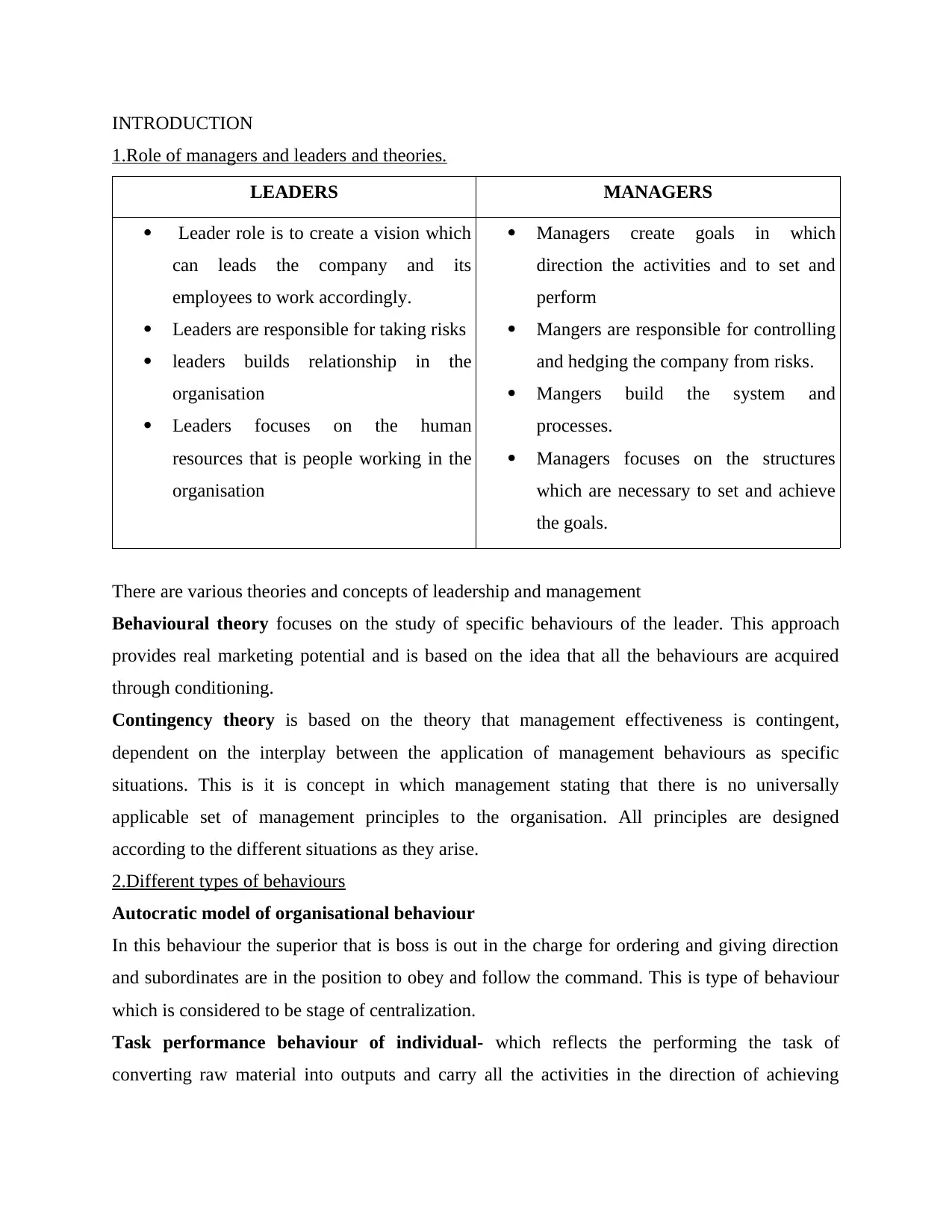Leadership and Management: Theories and Behaviors - Assignment Report
VerifiedAdded on 2021/01/01
|4
|321
|420
Report
AI Summary
This report delves into the core concepts of leadership and management, exploring various theories and behaviors within organizational contexts. It begins by differentiating between the roles of leaders and managers, highlighting their distinct responsibilities and approaches. The report then examines different leadership theories, including the behavioral and contingency theories, providing insights into their practical applications. Furthermore, the report analyzes diverse types of behaviors, such as the autocratic model and task performance, explaining their impact on organizational goals and individual contributions. This report aims to provide a comprehensive understanding of leadership and management principles, offering valuable insights for students studying management and leadership.
1 out of 4










![[object Object]](/_next/static/media/star-bottom.7253800d.svg)